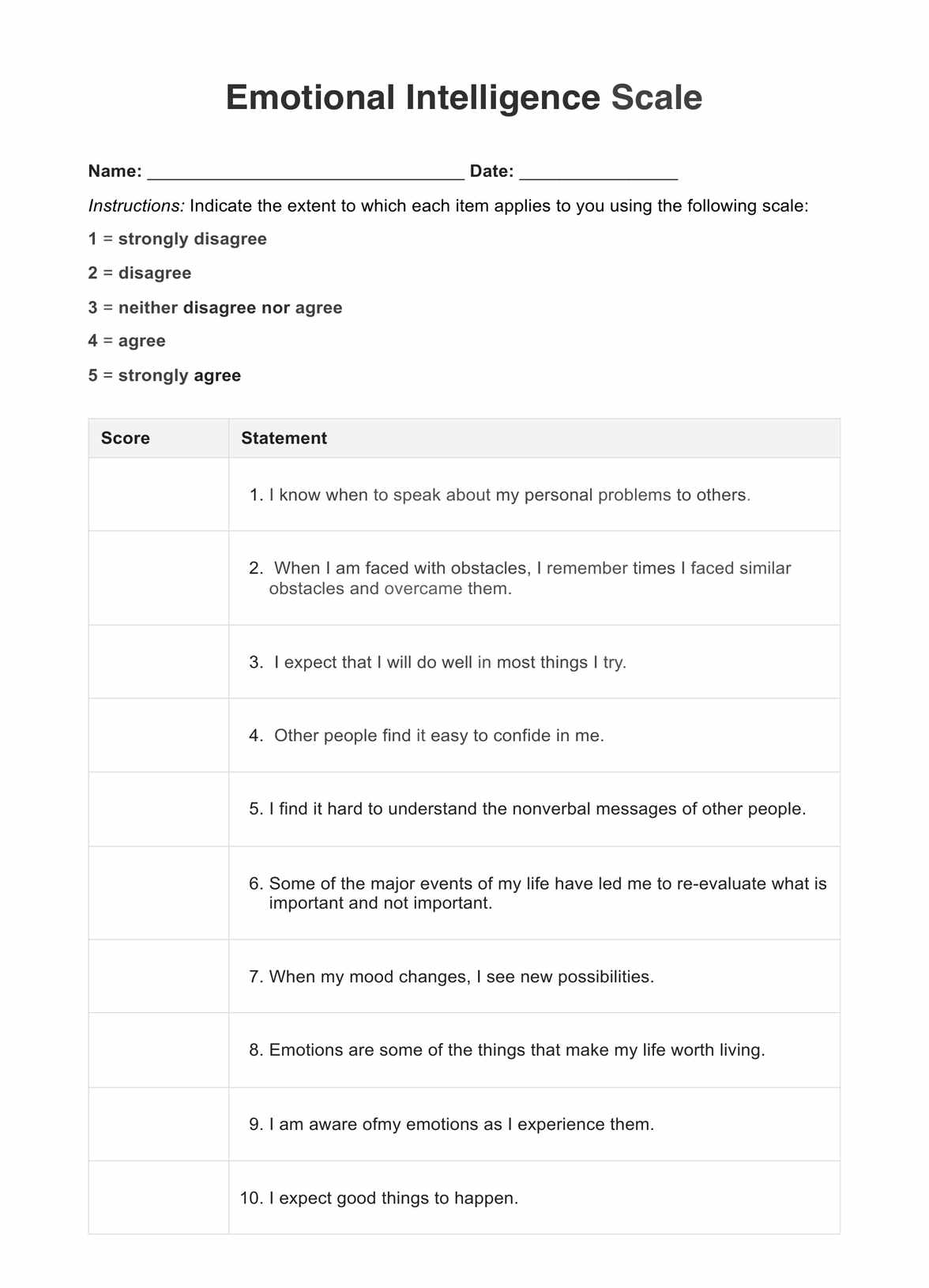The duration to complete the Emotional Intelligence Scale can vary depending on the specific scale and the number of items included. Generally, it takes around 15 to 30 minutes to complete the assessment. However, the length may vary based on the complexity and depth of the scale.

Emotional Intelligence Scale
Discover your emotional intelligence levels with our comprehensive scales. Gain insights into your self-awareness and relationship management abilities.
Emotional Intelligence Scale Template
Commonly asked questions
Absolutely! The Emotional Intelligence Scale is often used for personal development. By assessing your emotional intelligence, you can gain self-awareness, identify areas for improvement, and develop strategies to enhance your interpersonal skills, communication, and emotional well-being.
Yes, many organizations utilize the Emotional Intelligence Scale for employee assessments. It helps organizations evaluate and develop employees' emotional competencies, improving teamwork, communication, and overall performance.
EHR and practice management software
Get started for free
*No credit card required
Free
$0/usd
Unlimited clients
Telehealth
1GB of storage
Client portal text
Automated billing and online payments











